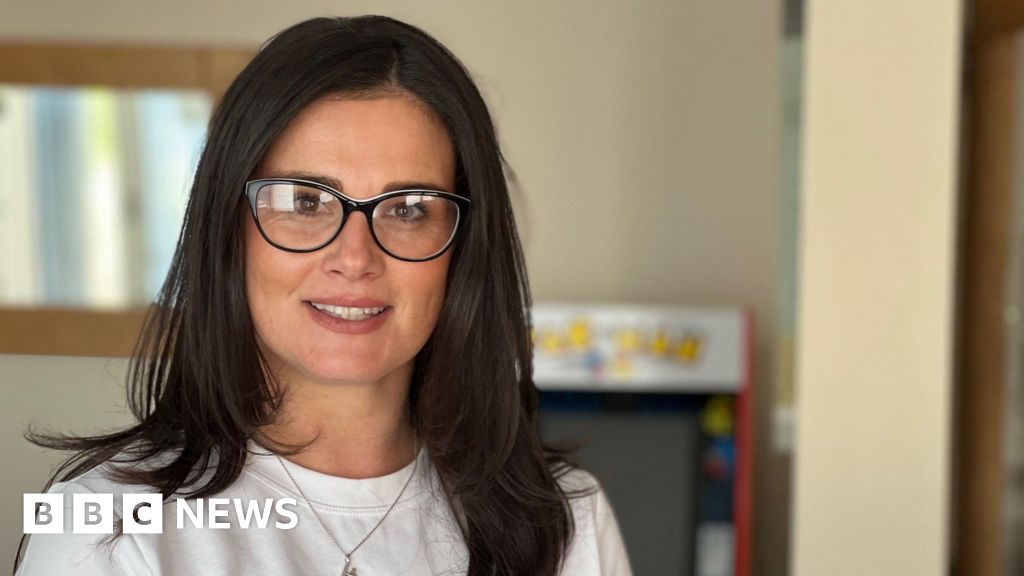Health Correspondent, North West
 Gill Dummigan/
Gill Dummigan/NHS England is to review its current policy concerning a decision not to fund a potentially life-extending treatment devised by NHS doctors for a type of eye cancer.
The treatment, called chemosaturation, treats the cancer once it has spread to the liver – which means it is at an advanced stage.
It comes as a mum from Greater Manchester tries to fundraise more than £180,000 for treatment at the Christie Hospital.
Hannah Quigley McKie from Trafford said she was “not ready to give up” and wanted to see her children grow up.
Hannah has ocular melanoma, the most common eye cancer in adults, which she discovered after going for an eye examination.
In nearly half of patients it spreads to their liver, where survival rates have been poor.
“The NHS offered me immunotherapy but that would only extend my life by a matter of months,” said Hannah.
“My family mean everything to me… I love them so much and I want to see my children grow up. I want to grow old with my husband. We’ve got too much life to live and we don’t want to give up yet.”
Chemosaturation uses a standard chemotherapy drug but in a far stronger dose than the human body could normally tolerate.
 Hannah Quigley-McKie
Hannah Quigley-McKieThis is done by temporarily isolating the liver and flooding it with the drug, before removing it, while a patient is under general anaesthetic. It means that the rest of the body is not exposed and therefore side effects can be minimised.
It was pioneered by a group of NHS doctors in 2012 and their studies have shown a response rate of nearly 90%.
More than a year ago North West highlighted the plight of Craig Shore from Glossop who was also fundraising to pay for chemosaturation treatment.
He had nine tumours but today, after three rounds of treatment, he says that has reduced to two and they are regarded as stable.
But the treatment carries risks because of the possibility the powerful drug can leak into the rest of the body.
In 2021, the National Institute for Health and Care Excellence (NICE) evaluated chemosaturation and gave it a guarded approval.

They said it did seem to work, but there could be serious complications – so those risks should be explained to the patients and the results should be reviewed.
As a result, following NICE guidance, NHS England decided not to make the drug routinely available on the NHS.
NICE did say the risks appeared to be reducing as the technique advanced – and they would look at it again in April 2024, but that did not happen.
But, after years of campaigning by charities, NHS England has now told North West it is reviewing the latest evidence to consider whether a change is needed to the current policy.
Welcome news – but that could take years, and Hannah cannot wait.
She has already received two treatments in the private wing of the Christie Hospital, and is now fundraising for another two.
“People have arranged countless different fundraisers for me. We’ve got football tournaments, a party boat, raffles and we’ve raised so much money. We’re so grateful,” she said.
“There’s proof out there that it works. All I want them to do is give people the chance to try this”.
An NHS spokesperson said: “NHS England is carrying out a review of the latest evidence relating to chemosaturation to consider whether a change is needed to the current policy that would lead to a clear clinical benefit to patients.”





